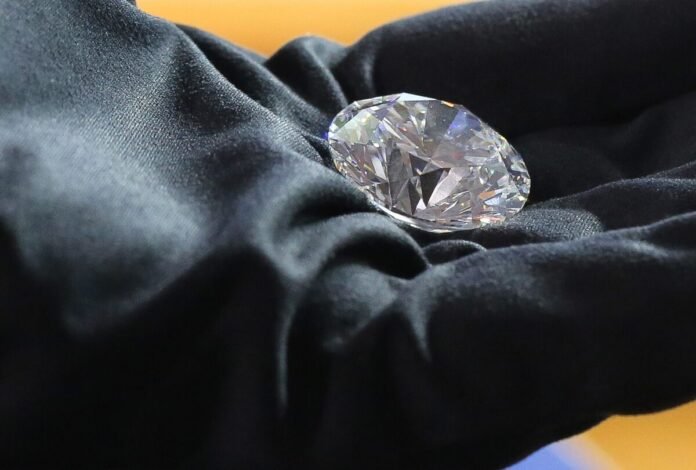In a maneuver that has further strained relations between Russia and the European Union (EU), the Kremlin has responded vehemently to the EU’s decision to ban the import of Russian diamonds. The Kremlin’s spokesperson, Dmitry Peskov, declared the sanctions to have a ‘boomerang effect,’ intensifying the already tense geopolitical climate.
The European Union’s move to ban Russian diamonds is part of a broader set of sanctions imposed in response to Russia’s actions in Ukraine and alleged human rights abuses. The ban, targeting one of Russia’s key exports, is seen as a significant economic measure designed to exert pressure on the Kremlin.
However, the response from Moscow has been swift and assertive. Peskov, in a press briefing, stated that the EU’s actions would not go unanswered and criticized the sanctions, particularly the diamond ban, as having a ‘boomerang effect.’ The use of this term implies that the repercussions of the sanctions will come back to haunt the EU itself.
The Kremlin argues that such measures, aimed at weakening the Russian economy, will only lead to reciprocal actions that may harm the EU’s interests. The diamond ban, while targeting a lucrative sector for Russia, is perceived as a double-edged sword that could have unintended consequences for the European market.
Russia is a major supplier of diamonds globally, and any disruption in its exports could have far-reaching implications for the international diamond trade. The Kremlin’s response underscores its commitment to defending its economic interests and warns the EU of potential repercussions on the global economic stage.
The diplomatic tit-for-tat between Russia and the EU has been escalating in recent months. Sanctions and counter-sanctions have become a common currency in their interactions, reflecting the increasing geopolitical tensions and strained diplomatic relations.
The EU, on its part, remains steadfast in its commitment to holding Russia accountable for its actions. The diamond ban is part of a broader strategy to impose economic pressure on Moscow, aiming to influence its behavior on the international stage. However, the efficacy of such measures is debatable, as evidenced by Russia’s defiant response.
More About Kremlin Warning
The ‘boomerang effect’ rhetoric used by the Kremlin is not a new concept in international relations. It suggests that sanctions imposed by one party may rebound on the imposer, affecting its own economic interests. This framing of the situation by Russia is a strategic move to convey that the EU’s actions could have unintended consequences for its member states.
As the standoff continues, the global community watches closely, aware that the implications of the Russia-EU conflict extend beyond their immediate borders. The diamond ban, with its ‘boomerang effect’ rhetoric, adds another layer of complexity to an already intricate geopolitical landscape.
In the midst of these tensions, there is a growing concern about the potential impact on ordinary citizens. Economic sanctions often have a ripple effect, impacting industries, businesses, and, ultimately, individuals who may find themselves caught in the crossfire of geopolitical disputes.
The Kremlin’s dismissal of the EU’s diamond ban as having a ‘boomerang effect’ sets the stage for a protracted struggle where economic and diplomatic maneuvers will continue to define the relationship between Russia and the EU. The question that looms large is whether these actions will lead to a diplomatic impasse or serve as a catalyst for constructive dialogue and conflict resolution on the international stage.

